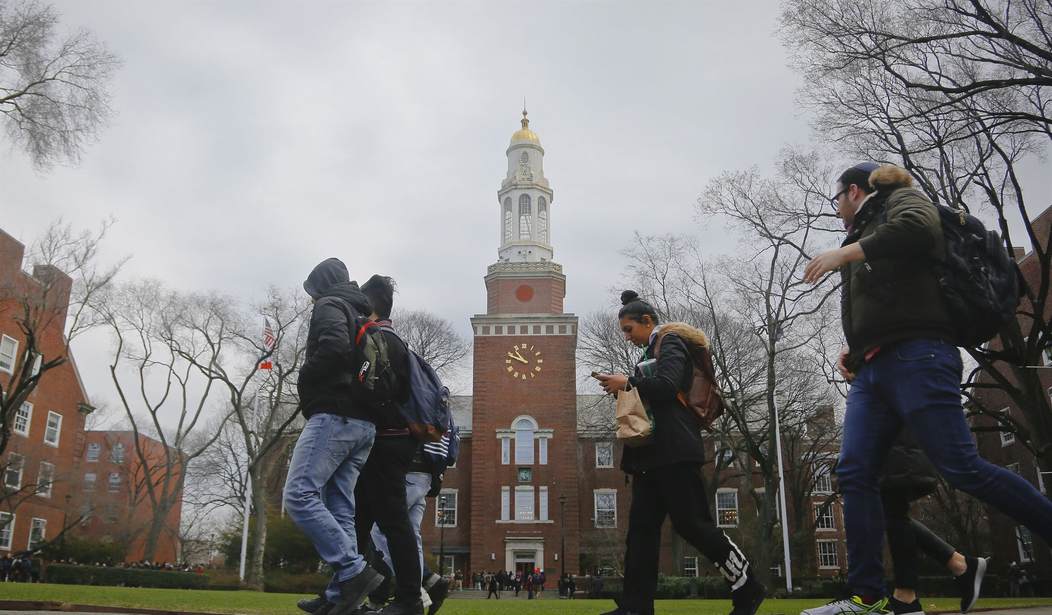If the human race was so fragile, so weak, so delicate that people needed to be warned before being exposed to controversial or difficult subject matter, we would have died out as a species 100,000 years ago.
The Chronicle of Higher Education has actually done research on the efficacy of “trigger warnings” and found that — to no one’s surprise — they don’t work. The practice of warning students about study material that might “trigger” an uncomfortable emotional response dates to the 1970s, when returning Vietnam veterans, suffering from PTSD, experienced flashbacks, nightmares, and other manifestations of the condition when studying certain topics.
So a common-sense precaution taken to protect veterans became a ludicrous exercise in faux-racial sensitivity — an opportunity for both woke students and faculty to parade their virtue for all to see.
The consensus, based on 17 studies using a range of media, including literature passages, photographs, and film clips: Trigger warnings do not alleviate emotional distress. They do not significantly reduce negative affect or minimize intrusive thoughts, two hallmarks of PTSD. Notably, these findings hold for individuals with and without a history of trauma. (For a review of the relevant research, see the 2020 Clinical Psychological Science article “Helping or Harming? The Effect of Trigger Warnings on Individuals With Trauma Histories” by Payton J. Jones, Benjamin W. Bellet, and Richard J. McNally.)
We are not aware of a single experimental study that has found significant benefits of using trigger warnings. Looking specifically at trauma survivors, including those with a diagnosis of PTSD, the Jones et al. study found that trigger warnings “were not helpful even when they warned about content that closely matched survivors’ traumas.”
Indeed, the studies conclude that “trigger warnings actually increased the anxiety of individuals with the most severe PTSD, prompting them to ‘view trauma as more central to their life narrative.'” Giving people who are taught they are fragile and oppressed a reason to feel bad about their lives is never a good idea.
“Trigger warnings,” they concluded, “may be most harmful to the very individuals they were designed to protect.”
Duh.
On-campus the definition of what constitutes a trigger has expanded dramatically from stimuli that induce symptoms of PTSD to any material that might elicit “difficult emotional responses.” Refracted through the prism of social justice, trigger-worthy topics proliferated to include the likes of racism, classism, sexism, ableism, and other “issues of privilege and oppression.”
Note how beautiful the academic construct fits into a political agenda. Trigger warnings were never about sparing students the pain and emotional trauma of being forced to “relive” or recall an event in their lives that reminded them of their status. It was about developing the means to control and influence young adults and children to think about the world in a bizarrely skewed way.
If you tell someone they’re “oppressed,” they will feel oppressed. If you tell them they can overcome, they will accomplish extraordinary things. Imagine what the world would be like if educators began teaching kids that way?










Join the conversation as a VIP Member